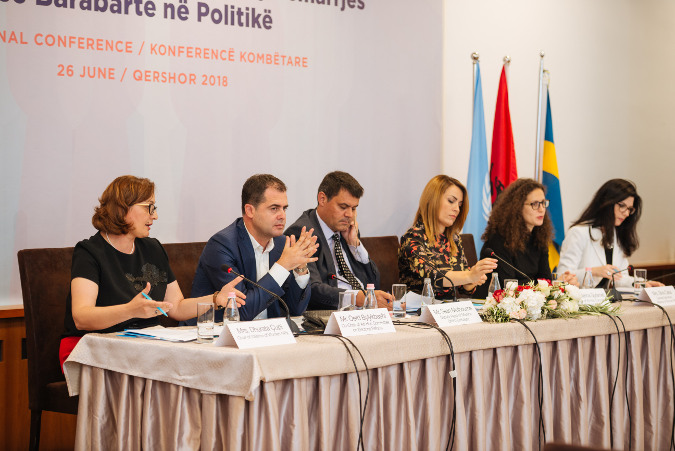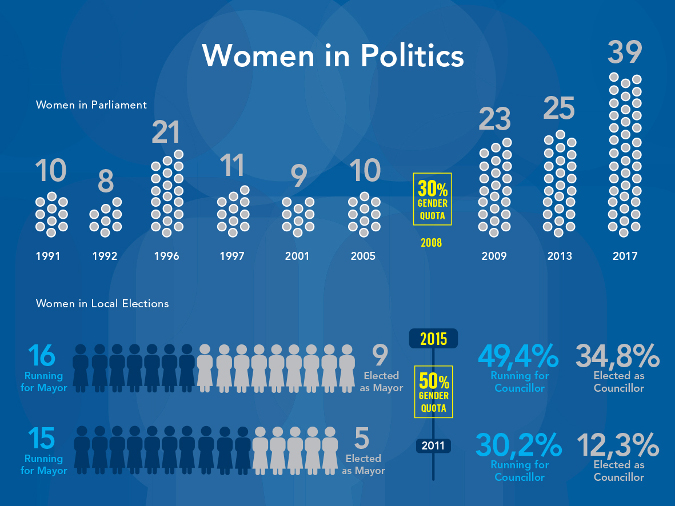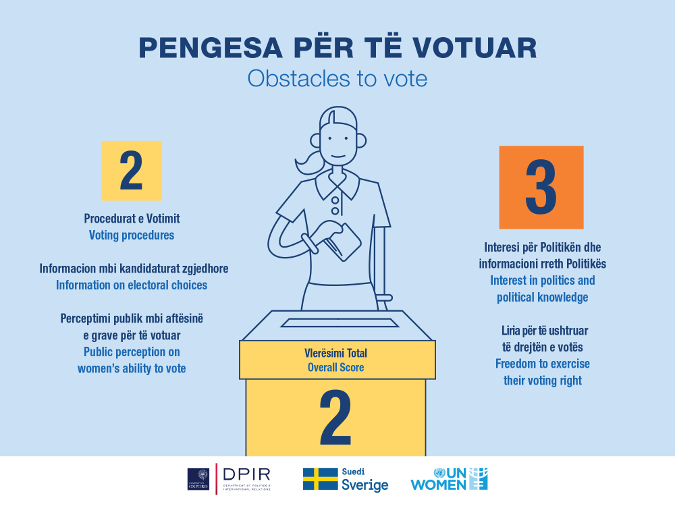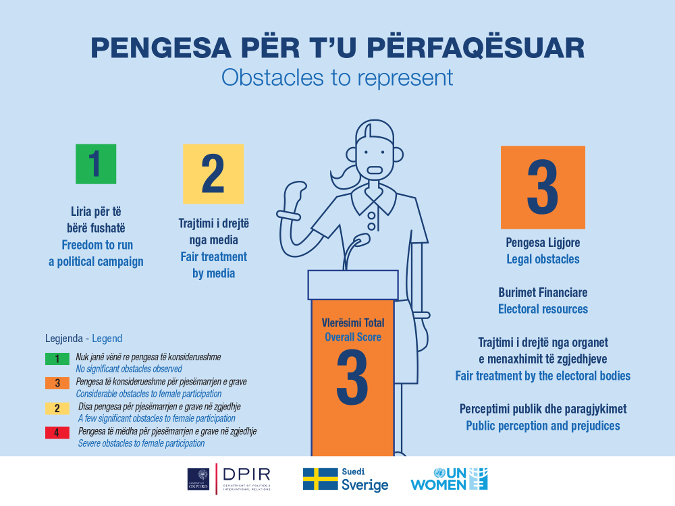Standards of Equal Representation and Participation in Politics in Albania: One Year from Local Elections
Date:

Tirana, 26 June 2018 - UN Women organized the National Conference on “Standards of Equal Representation and Participation in Politics: One Year from Local Elections”, in collaboration with the Albanian Parliament.
The Conference brought together high-level participants; including Members of Parliament, representatives of political parties, co-Chair and members of the Ad-Hoc Commission on the Electoral Reform, OSCE representatives and international partners; to discuss where Albania stands with achieving gender equality in politics and propose a set of recommendations. The Conference was opened by Giuseppe Belsito, UN Women Representative in Albania.
Vasilika Hysi, Deputy Speaker of the Parliament, stressed the need to put an end to assigning symbolic women candidates on party lists just to fulfill the quota and getting them to resign after the elections to provide their place for male appointments.
Oerd Bylykbashi, Co-Chairman of the Special Commission on the Electoral Reform, emphasized that the quota mechanism should be strengthened by rejecting the lists as a guarantee for solutions.
The discussions were based on the two recent UN Women publications presented at the Conference: A National Index on “Obstacles to Women Participation in Elections”, produced with the University of Oxford, and a study on “Standards of Equal Representation in Political Parties”, produced with the Institute of Political Studies. The Government of Sweden financially supported both studies.
The index focuses on a set of specific issues and potential impediments to women’s participation in elections in Albania and how these may vary across the country. It shows that women face considerable obstacles to participate in elections. They score better with exercising their right to vote.
Women in Berat, Diber and Korça seem to have faced less obstacles to exercise their political rights in the parliamentary elections of 2017, whereas women in Lezhe, Elbasan and Kukes experienced significant obstacles.
The index can be used by national and international actors to identify the issues regarding women’s participation in elections across the country.
The study on Political Parties presents a detailed analysis of the standards of political parties in Albania from a gender perspective. According to the study, experts, women and men politicians and general public believe that quotas in the Electoral Code are the best option to ensure women’s representation together with more funds available to women in the parties and during political campaigns and more promotion in the media.
Some political parties still have challenges implementing the 30 per cent quota in candidates list and they place women at the end of the lists with little chances to win parliamentary seats.
Brian Williams, UN Resident Coordinator in Albania, highlighted: “When the discourse will not focus on women’s lack of resources, political ambition or lack of capacities, but on the institutional and cultural barriers women face even to become and remain in politics, then we will be able to see a real and sustained change.”
Johan Ndisi, the Ambassador of Sweden, noted that there is still work to do in this regard, the gender quota is not being implemented and women are still underrepresented.
The event also served as a forum to share and finalize a set of recommendations for the actual work of the Ad-Hoc Commission on the Electoral Reform, which have been prepared by different groups of interest.


